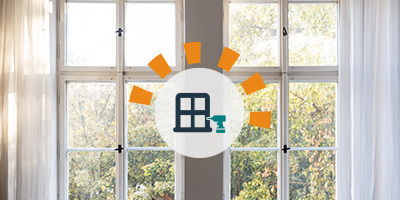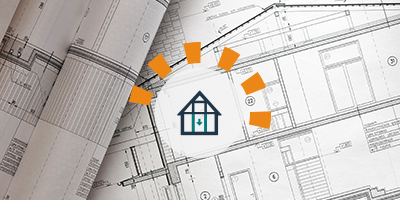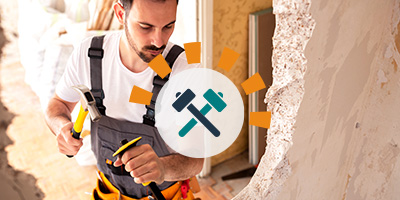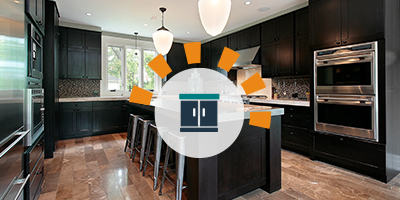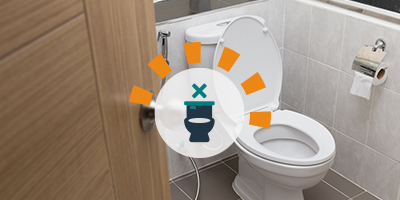Demolition Tips From the Experts: Keselman Construction Group
Prepare for the project ahead with expert insight on conquering demolition.
Make cleanup a breeze with a roll off dumpster.
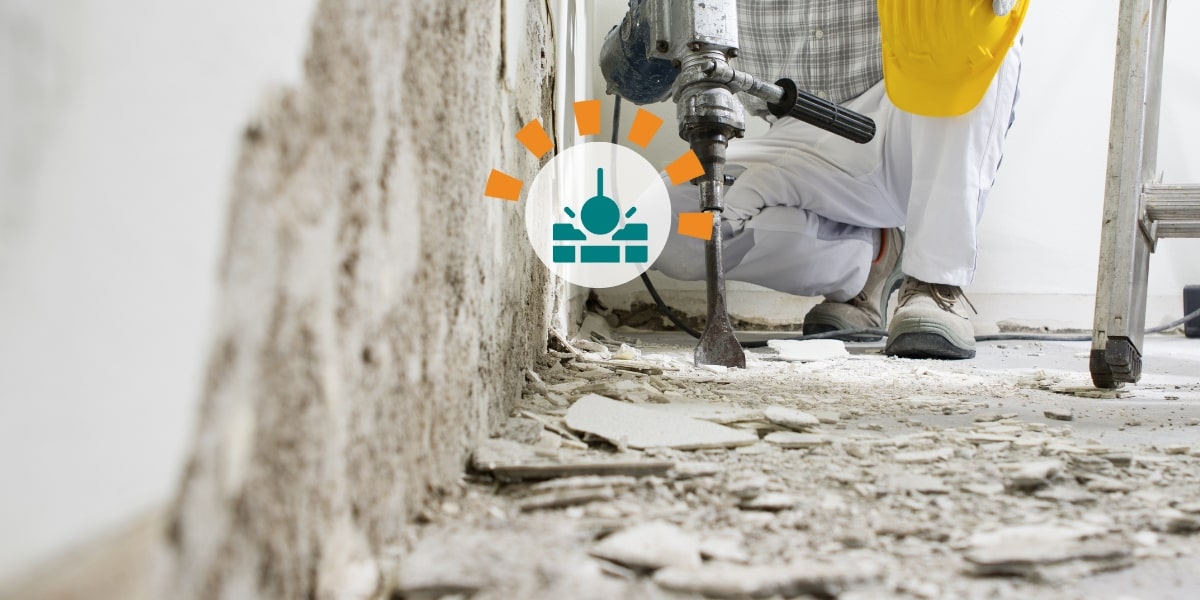
How to Tackle Demolition Like a Pro
Planning to take on your own home demolition? Before you grab the sledgehammer, get expert tips to tackle the project safely and effectively. We sat down with Chris Liogky, project manager with Keselman Construction Group, Cleveland's award-winning design-build remodeling specialists. From essential prep steps to common mistakes, here’s what he had to say.
Home Demolition FAQs
Should I rent a dumpster for a house demo?
There is a lot of debris produced when tearing down a home, and a dumpster allows you to get it contained immediately. Plus, depending on your space, we offer multiple dumpsters or swap outs to keep your project moving.
Think you need a dumpster? Place your order online today.
How do you calculate demolition costs?
The cost is typically associated with the square footage of the space you're demolishing. The average demolition usually costs $4 to $17 per square foot. You can calculate this by multiplying the dollar amount by the square footage.
Can I do my own demo?
Yes, doing your own demo will save you money. However, make sure you're following appropriate safety measures and only taking on projects you're comfortable doing.
How long does demolition take?
An uncomplicated demolition takes about one week on average. Smaller projects can take one to three days and larger jobs can take up to two weeks.
What's the difference between demolition and deconstruction?
Demolition means to knock something down, whereas deconstruction is taking something apart so it can be used again. While being destructive is often a faster way to tear down the old parts of your home, deconstructing things, like kitchen cabinets and windows, is a cleaner process that allows these supplies to be reused.
When Should You Hire A Pro?
Demolition is serious work. Smashing things can be fun but you need to be careful. If you have doubts about your ability to do the work safely and in a timely manner, hire a contractor.
Demos involve physical labor and have multiple components that require research and knowledge. If you don’t want to, or can’t take the time to learn about these projects, don’t attempt them on your own. Be realistic about what you’re able to do, and don’t be afraid to seek a professional if you’re unsure about something. Spending money to do it right once is better than having your roof cave in and paying extra to have your mistake fixed.
Projects You Should Definitely Leave to the Pros:
- Jobs involving natural gas
- Projects dealing with mold
1. Create a Detailed Plan
When you tackle a renovation demolition, there’s a lot to account for, so don’t go in blind. A plan will help you get through your project efficiently and minimize the amount of damage and cleanup you’ll face.
“Before diving into any demolition work, it’s crucial to develop a detailed plan," said Liogky, "This plan should outline the:
- Specific areas you intend to demolish
- Methods you will use
- Timeline for the project
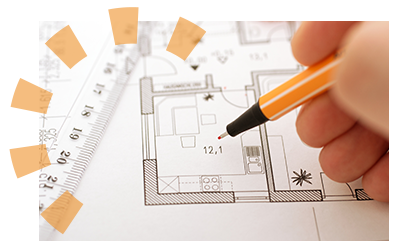
We start by assessing the structure, identifying which walls are load-bearing and which materials are present. This includes checking for plumbing and electrical lines that may run through the walls. You may need to consult with a structural engineer to make sure you’re not compromising the integrity of the building.”
Before beginning your demolition project, have a professional look at your home's structure before deciding to take down walls.

Pro Tip From Chris Liogky
“One of the biggest mistakes among DIYers is underestimating the complexity of the demolition process. Many assume that demolishing walls is straightforward, but without knowledge or a plan, they can encounter unexpected issues like ruining the structural integrity of the project. Failing to check for electrical wiring or plumbing can lead to dangerous situations, such as electrocution or flooding.”
2. Prepare the Area
Once you have a plan in place, it's time to clear your home of all belongings, do a thorough walkthrough of your house and turn off utilities.
Remove All Belongings
"The initial phase of any demolition project should involve clearing the area of all furniture, appliances and personal belongings. This not only helps create a safe workspace but also prevents damage to customers’ valuables," Liogky said.
Inspect the Area
Second, "After clearing the space, conduct a detailed inspection to mark the specific areas you plan to demolish. We usually mark out everything that's getting removed. It’s also great to take photographs of the current state of the space for reference throughout the project," Liogky advised.
Shut Off Utilities
Lastly, "Once you’re ready to begin, ensure that all utilities — such as water, electricity and gas — are turned off to avoid any accidents,” Liogky said.
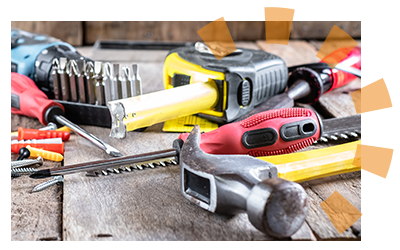
3. Gather Your Tools
You don’t want to slow down because you’re missing a valuable tool. Learn about the project and make sure you know everything you’ll need to get the job done before you dive in.
“A toolkit is essential for any demolition project," said Liogky. "Key tools include a:
- Sledgehammer for breaking down walls
- Pry bar for removing fixtures
- Reciprocating saw for cutting through materials like wood and metal
Depending on the scale of your project, you may also need a jackhammer for harder things like concrete. Additionally, renting a dumpster or arranging for debris removal is important, as managing waste efficiently will keep your workspace organized and safe.”
Order a Dumpster Online
Shopping after hours? Too busy to make another call? Book the dumpster you need, when you need it. Order your dumpster online 24/7.
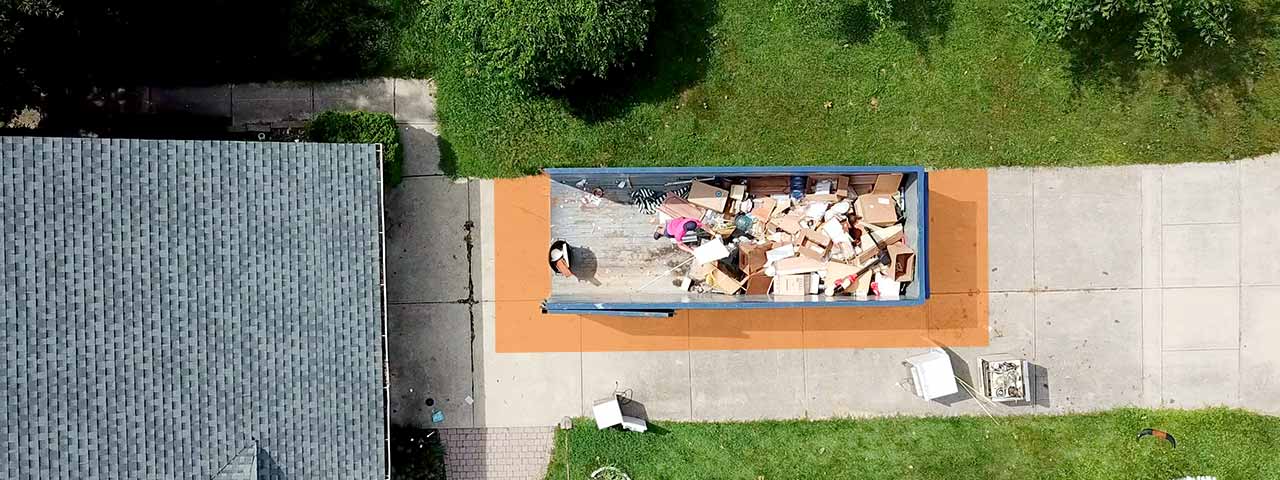
4. Wear Safety Equipment
It’s important to always be aware of your surroundings and what you’re working on. Not only do mishaps lead to injuries, they can cause problems that end up costing you more money. Have your home’s blueprint on hand so you know where important things are located, like live wires and load-bearing walls, and where you need to be careful.
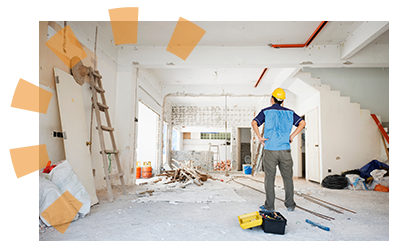
Liogky emphasized safety first, including securing your work area to keep kids, pets and passersby away from potential hazards. “Safety should always be the top priority during demolition work. Wearing appropriate protective equipment is essential. This includes:
- A hard hat to protect against falling debris
- Safety goggles to shield your eyes from dust and splinters
- Gloves to prevent cuts and scrapes
- A dust mask to reduce inhalation of harmful dust
Ensure that your workspace is well-ventilated to minimize dust build up.”
5. Stop if You Find Mold
For projects involving mold, consult a professional before dealing with it yourself. Since spores can spread through the whole house if they’re disturbed, some jobs are best left to the experts.
Liogky advised, “If you discover mold during your demolition, it’s essential to halt all work and assess the damage. Mold can pose serious health risks, and depending on the severity, you may need to consult professionals who only deal in mold remediation. In the case of pest infestations, identify the type of pests you’re dealing with — some may require specific treatments. Consider reaching out to pest control experts to handle the situation properly. Ignoring these issues can lead to more significant problems down the line.”
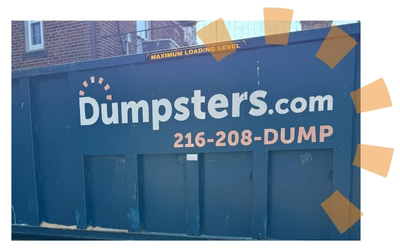
6. Plan for Your Cleanup
For easy cleanup, order a dumpster rental to have a waste removal solution on-site to clean as you go. This will make the cleanup process less overwhelming.
“Cleanup is one of the most frequently neglected things of demolition projects," said Liogky, "Many people focus solely on the act of demolition and overlook the importance of properly disposing of debris. Forgetting to plan for waste removal can result in an overwhelming mess that detracts from the overall project.
Also, the presence of hazardous materials, such as asbestos or lead paint, is often underestimated. Identifying and managing these materials needs special precautions and, in many cases, professional companies are needed to make sure of safe removal and compliance with regulations.”
Plan Smart, Demo Safe
Home demolition can be a rewarding project, but it’s far more than swinging a hammer. With insights from Keselman Construction Group, you’re better prepared to tackle the job safely, avoid costly errors and know when to bring in the pros.
Need help getting rid of the debris? We’ll help you choose the right roll off dumpster for your project.
Expert Contributors
Chris Liogky
Chris was born in Cleveland, Ohio, and has been dedicated to the construction industry since 2014. He earned his bachelor's degree in Supply Chain Management from Cleveland State University. He is passionate about home reconstruction. Since joining the Keselman Construction Group team in 2024, he brings a focused work ethic and commitment to quality.
What Do You Think?
Have thoughts on your next DIY demolition? We want to hear about it. Head over to Twitter or Facebook,
and use #dumpstersblog to join the conversation.

